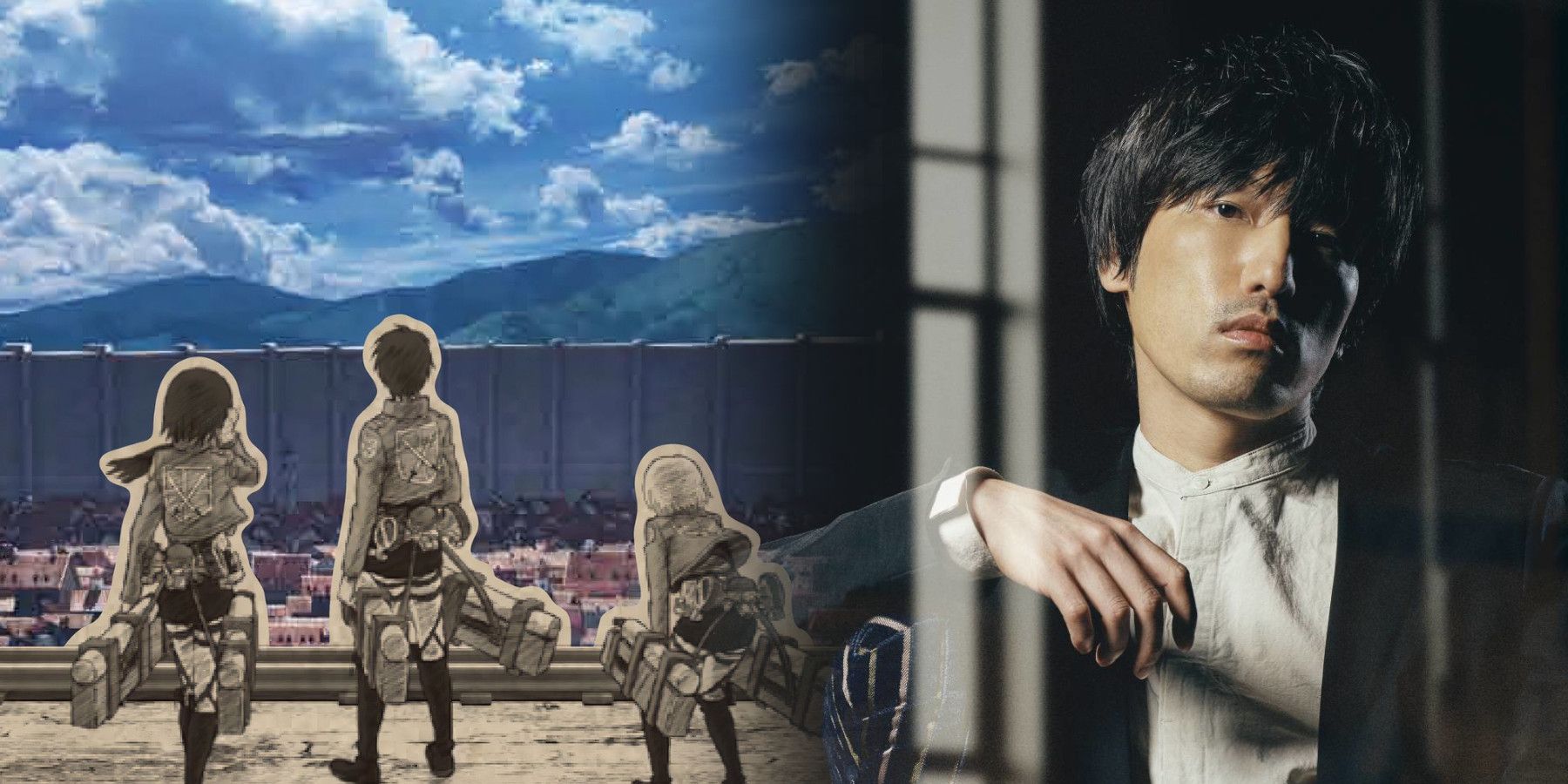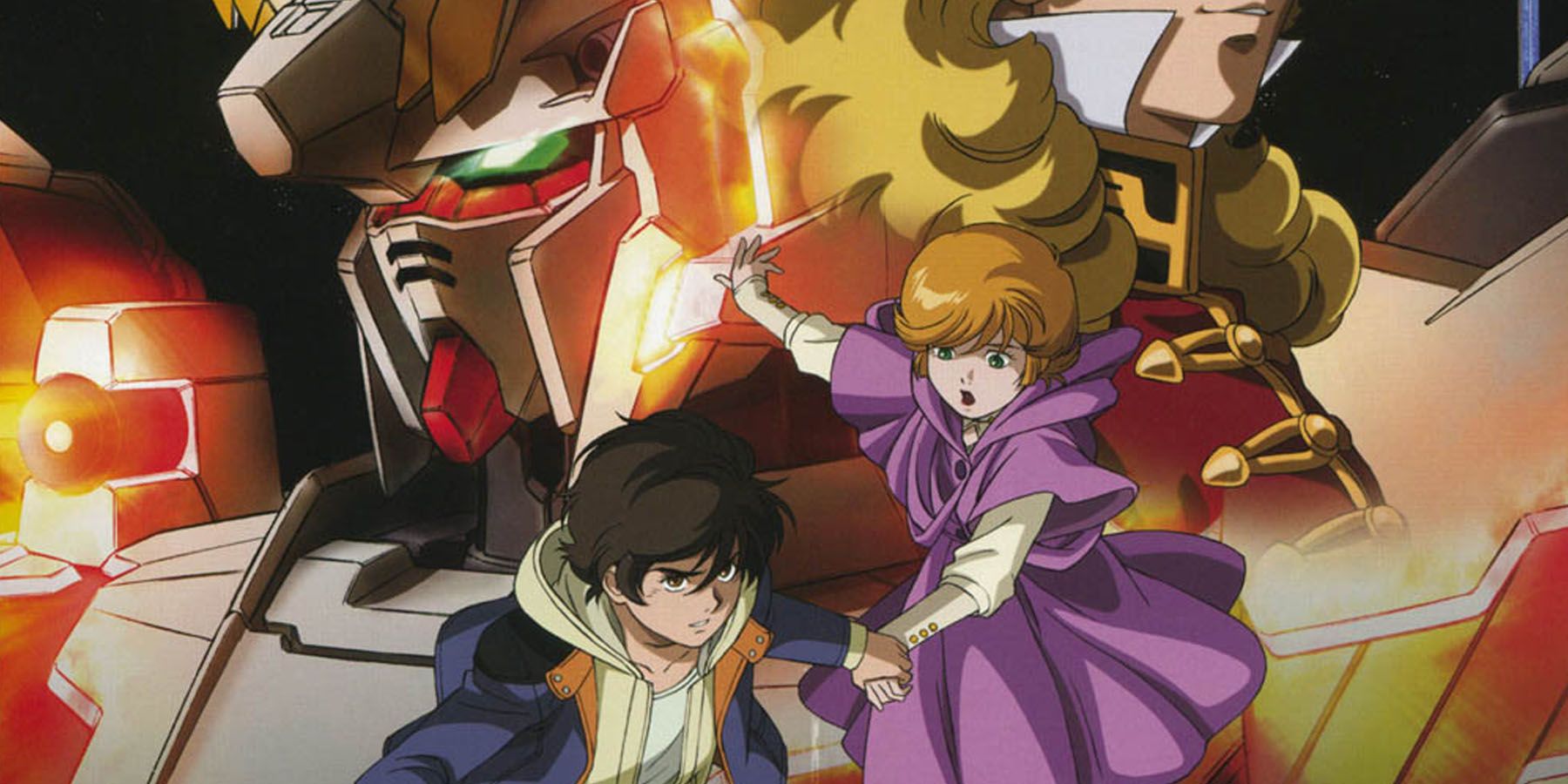When Wit Studio and director Tetsuro Araki animated Attack on Titan, they ushered in a new generation of anime fans with some of the most exciting and epic storytelling ever seen. But one particular part of the machine carried the production throughout the series: composer Hiroyuki Sawano.
Born in Tokyo, Sawano learned piano from a young age and became inspired to work in music thanks to the pop icons of his time and film composers such as Ghibli composer Joe Hisaishi. Since 2006, he has worked in the anime industry and beyond, composing some of the most hyped multi-genre soundtracks fans have ever heard.
Sawano's Start
Throughout his childhood, Sawano's inspirations ranged from pop music to orchestra to film composing. In an interview with GENELEC, Sawano describes his tastes in music as ever-changing, which provoked him to experiment with different genres, stating "so at one time I simulated an orchestral piece... and at other times I tried a techno-like song."
Famed Cowboy Bebop composer Yoko Kanno was cited as another strong influence, primarily for the range she was capable of. "I was shocked to learn that even a single composer can always take different approaches depending on the work." Sawano also turned his eyes - and his ears - to the film compositions of the west, such as Hans Zimmer, for inspiration.
Sawano's earliest work in anime may have started in 2006 with the light novel adaptation Soul Link, but fans of his work today might never recognize it compared to what he'd compose mere years later. To him, it was Gundam Unicorn that truly launched his career in anime composing to new heights and within subsequent years, his touch was felt in the pulse of several of the highest profile anime.
Why Choose Just One?
A recap of his biggest anime works would be wasted without a thorough assessment of what makes his music so appealing to so many. Next to "lofi hip-hop" or other such extended music compilations online, Sawano's greatest hits, both epic and emotional, can be found in hour-long compilations across YouTube.
Sawano's disparate and ever-changing musical tastes seemed to have rubbed off on his creative process, which can gently be called a stew of different genres. His music exists within a crossroads of rock, techno, and orchestral, often existing all at once. Attack on Titan's music, by the necessity of the setting, has less techno, but still infuses adrenaline-pumping rock with inspiring or heartbreaking strings.
Consider the score to Titan, which might be one of the most iconic and all-encompassing of his works. Particularly in the longer tracks, there is a weaving of distinct sections that blend these multiple genres together, gradually changing the tone and telling a story. In the above track, "cóunter・attàck-mˈænkάɪnd," the opening begins wistful and slowly introduces an electronic backing as it begins to become more hopeful.
When paired with a good director, Sawano's music isn't merely a delectable accouterment but a core reason that the emotional highs hit as well as they do. Moments like Mikasa's resolve to live on in episode 10 of season 1 are made so much more powerful because of the music. Tetsuro Araki has worked with Sawano on Titan, Guilty Crown, Kabaneri, and recently on the film Bubble, and the pair have never failed to compliment each other brilliantly.
The Sawano Drop
To be frank, it's not as if even arguably poor direction has stopped Sawano from elevating the works to which he is attached. Perhaps the most interesting aspect of his music, though also the source of potential division among listeners, is the predictable, almost formulaic nature of them, akin to electronic genres.
The famed "Sawano Drop" refers to the aptly named drop that occurs after a buildup, and functions identically to other genres with similar construction. Of course, the content matter is obviously different and appeals to different kinds of emotions, but it nonetheless generates interest and hype.
So many Sawano tracks begin with either a slow and emotional buildup or an enticing drum beat or guitar riff. Once more instruments have been added and the tempo begins to pick up, the music seems to fall silent for just a beat at the apex before the drop occurs. In vocal tracks, the next lines are sung relatively isolated before the rest of the instruments join in and ride out the chorus.
In non-vocal tracks, there is typically a series of three or four chords before the drop truly hits. A lot of those "apex beats" that occur at the top of the hill can start to sound somewhat reminiscent when you listen to a lot of Sawano's music. This is part of the reason why some can get tired of his composition after a while.
Even so, his music, despite an apartment sameness that creeps in now and again, always seems to fit whatever project he is a part of. It helped make Sengoku Basara one of Production I.G.'s most epic and outrageous gems. It elevated the already uproarious and queer Promare to absurd new heights. And Gundam will always have a place for Sawano's most heroic tracks.
What's Next For Sawano?
Sawano's work has expanded beyond anime, into live-action dramas and even films. In his own time, he has created original music under the label "SawanoHiroyuki[nZk]" or "[nZk]," working with various artists to focus on vocal tracks.
In addition to his own original music, Sawano is continuing to take part in anime such as Attack on Titan, and even the ongoing Gundam Hathaway trilogy, the first having released in 2021. Sometimes it begs questioning if he tailors his music to fit the material or if he is chosen because the material would best fit him. Already, fans of the popular ManWa Solo Leveling are anticipating the anime adaptation, of which Sawano is set to compose the music.
Whether he composed someone's favorite soundtrack or if he's played in the background to get someone hyped to work or exercise, Sawano's sound is truly unique in the industry. Taking inspiration from some of the best composers of his time and within his own industry, he managed to establish a kind of sound that seldom compromises and always builds hype.
Source: GENELEC.jp


